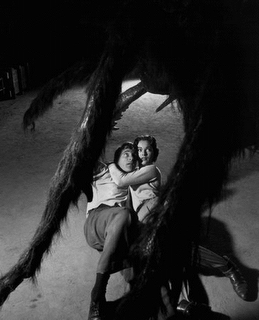
Changes in the form of an asset are referred to as "mutations".
For example, let's say that Mary owns a house prior to marriage. She then marries John. As we have discussed, the house is clearly the separate property of Mary.
Now assume that after the marriage she sells the house and purchases two giant atomic ants. She then sells THEM to a circus sideshow and with the proceeds, buys stock in Atomic Widgets Inc.
We say that the house "mutated" into Atomic stock by the subsequent transactions of Mary.
The interesting thing about mutations is that under Texas law, the characterization, does not change. The fact that the property is the separate property of Mary is not changed by the fact that the property changes in type over time and through various sales. As long as the proceeds from the sale of separate property are used to purchase other property, the new property retains the separate property character. Of course, as we have previously mentioned , the spouse trying to prove the separate nature of the property has the burden of proving that it is not community. However, this can be done if there are records to trace the assets.
Another interesting thing about mutations is that even if the value of the mutated asset goes up, it still retains it's character. So in our example, if the Atomic Widgets stock goes up and are not other wise sold during the marriage, then the increased value of the stock is still all the separate property of Mary.
Although any dividends or other payouts from the stock are considered community, (because such payouts are much like "income" from the stock), the stock themselves (and their increased price) are still Mary's separate property.